Guinea pigs to the rescue
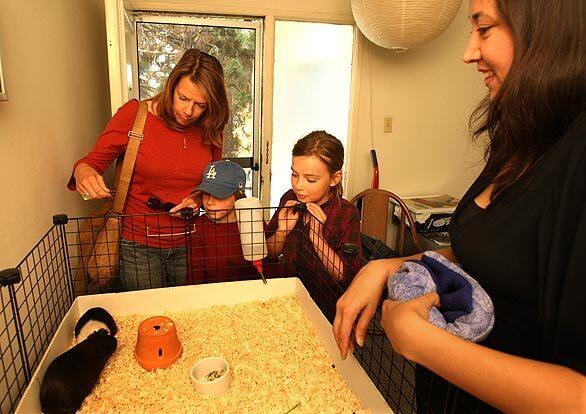
We’ve heard of rescue groups that deal with dogs, cats, even birds and snakes, but a guinea pig rescue group? That was new. Writer Dawn Bonker investigates.
Jenn Lima (far right) is a volunteer with Orange County Cavy Haven. She is fostering a mother-daughter pair of sows (female guinea pigs) in her West L.A. apartment. She said her group keeps tabs on two to 10 guinea pigs in local animal shelters on any given week, pulling as many as possible for adoption. Julia Fitzgerald (shown with her kids Zander, 6, and Hannah, 8) is thinking of adopting the critters. (Anne Cusack / Los Angeles Times)
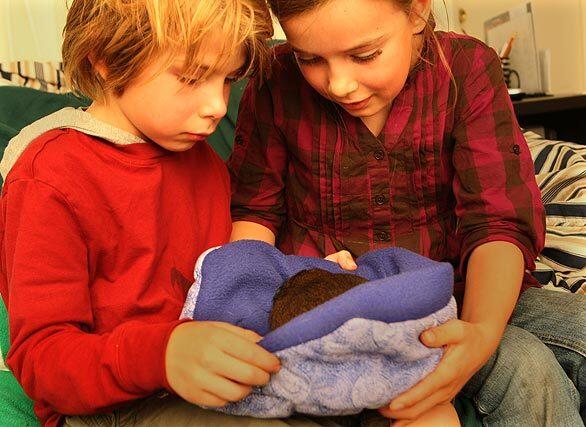
Zander and Hannah cuddle up to one of the guinea pigs. “There’s been a real proliferation in the number of rescues around the country,” said Teresa Murphy, founder of Cavy Spirit. She estimated that 20 to 30 large-scale guinea pig rescue operations have been established nationwide, each with at least 50 animals in their care at any given time. Smaller rescues are expanding too, she said. (Anne Cusack / Los Angeles Times)
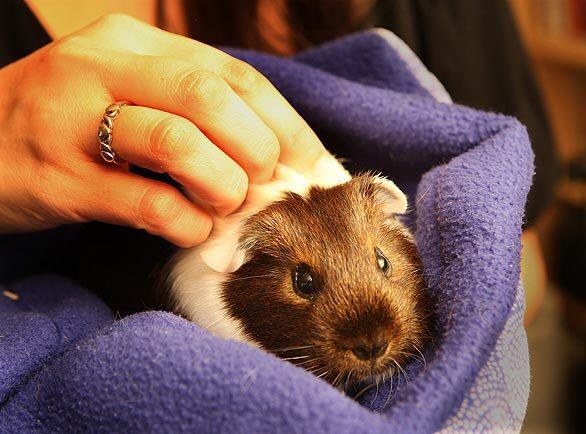
The animals are surrendered by owners, plucked from shelters, fished out of trash cans or simply abandoned in homes and yards when owners move on, said Julia Hinrichs, president of Texas Rustlers, which takes in about 20 new guinea pigs every month. Shannon Cauthen, who runs Cavy Care in Colorado, said that for every furry face that gets adopted from her shelter, a new one comes. On any given day, she has 100 guinea pigs waiting for a second chance. (Anne Cusack / Los Angeles Times)
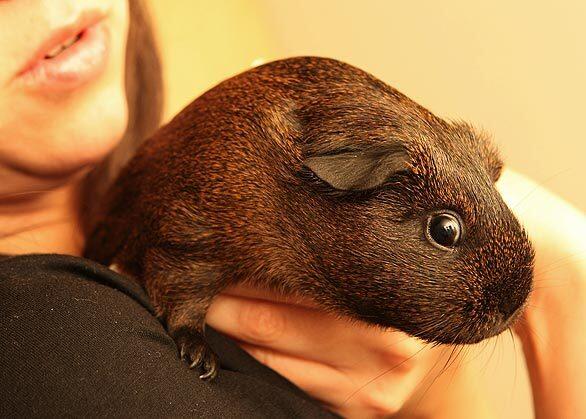
Many rescuers are bracing for the numbers to grow in the months to come. Blame Disney’s summer movie “G-Force,” a kid flick featuring wise-cracking guinea pigs as FBI agents trying to save the world. Neither Petco nor PetSmart would release specific figures, but spokeswomen for both said the chains have seen rising interest in guinea pigs since the movie premiered. (Anne Cusack / Los Angeles Times)
Advertisement
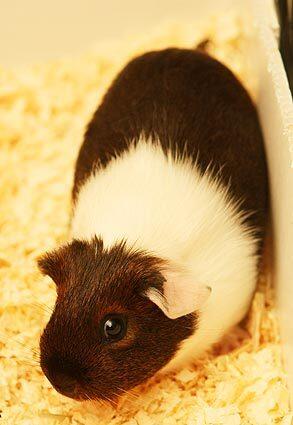
Film-fueled spikes in demand would be fine, animal protection groups say, if they weren’t usually followed by an epidemic of buyer’s remorse. Dalmatians, Chihuahuas and even clown fish (remember little Nemo?) have all been down this fickle road, said animal behaviorist Stephen L. Zawistowski, executive vice president of the American Society for the Prevention of Cruelty to Animals. Beloved one day, in the shelter the next. (Anne Cusack / Los Angeles Times)
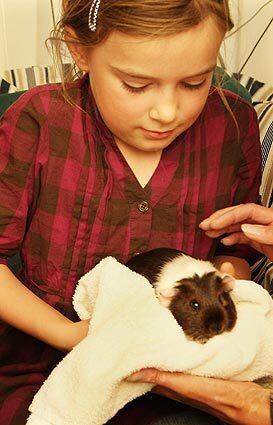
Happy guinea pigs do require involved care. They poop (who doesn’t?) and sometimes have accidents when picked up. They get chubby if not exercised, can get sickened by their cedar bedding and develop scurvy if improperly fed. (Anne Cusack / Los Angeles Times)



